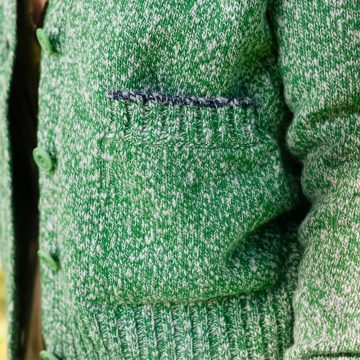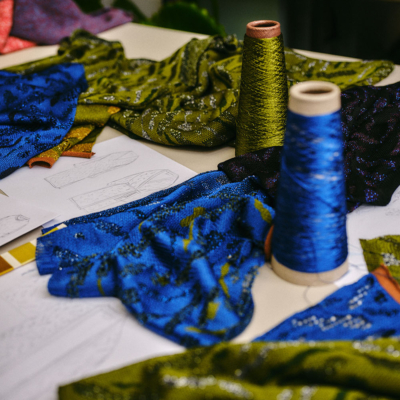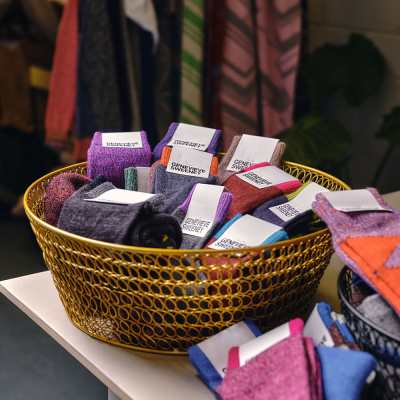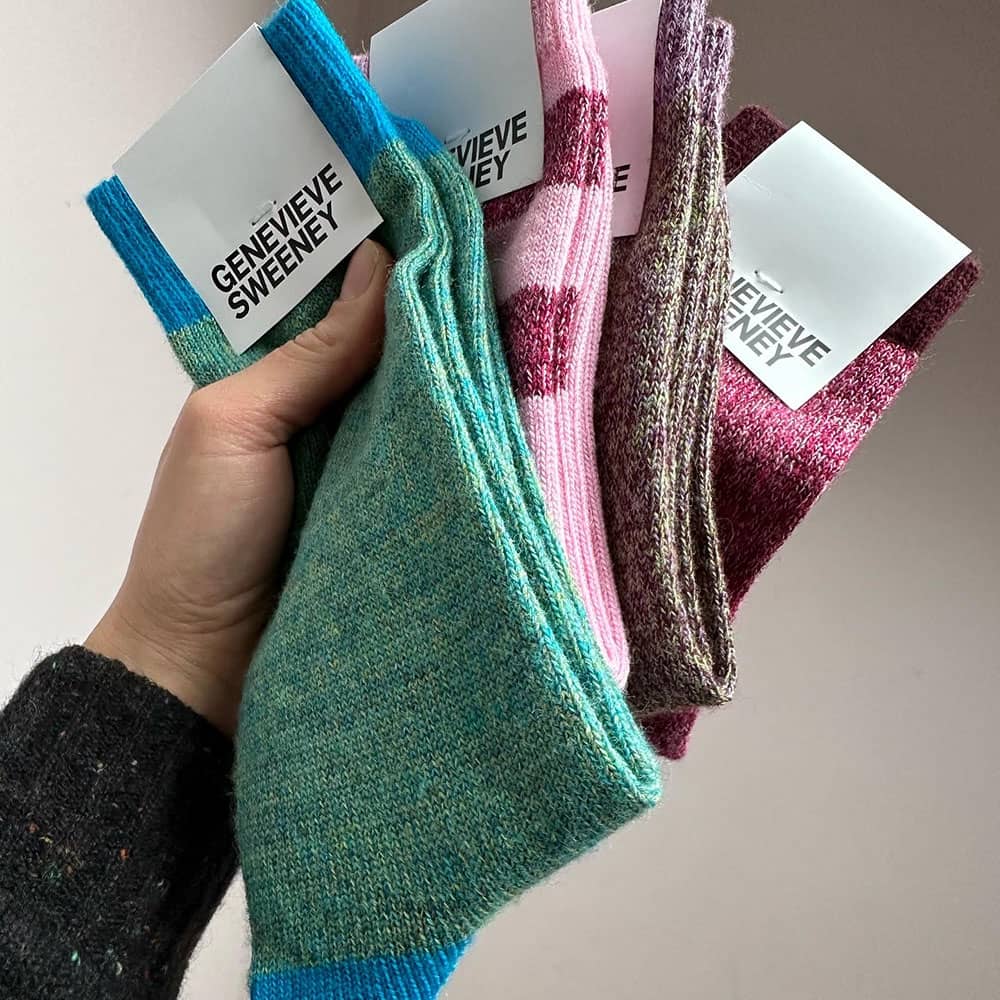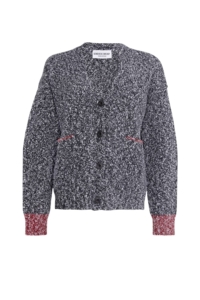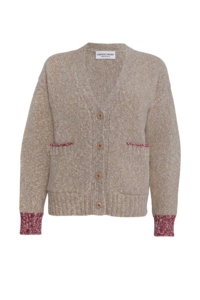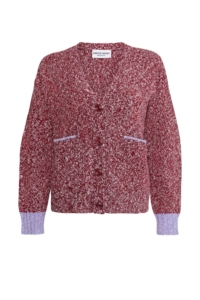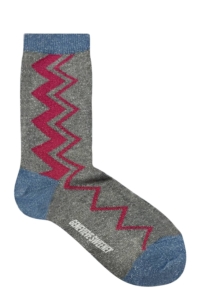GS Journal
Experiences of Manufacturing in the UK
Six months ago, I successfully went through the Virgin StartUp Scheme and received funding for my premium knitwear label, Genevieve Sweeney Limited. All the manufacturing is produced within the British Isles, and this was a key value that I wanted the brand to hold.
My background, before launching my label, was designing and developing global knitwear collections for renowned high-end fashion houses. Most of the knitwear was produced in Europe and China at high volumes, and I spent a lot of time working closely with manufacturers in Turkey, Hong Kong and Italy. It was an incredible experience to learn about each different process in manufacturing, and really push the product from sketch to store.
Through my own passion for knitting and collecting antique knitting machinery, I met an incredible family-run factory in the Scottish Borders. I was intrigued by their micro set up, amazed at their level of skill, and came across techniques that are now very rare. The attention to detail is exceptional, and I had the strongest feeling that, when I launched my label, I wanted it to be manufactured in the UK.
Now I source the manufacturing of Genevieve Sweeney Knitwear across the UK – from cashmere and luxurious yarns are knitted in the Scottish Borders, to high-tech yarns in contemporary silhouettes knitted in London. It’s fantastic opportunity to work with such a variety of manufacturers as they all have different skill-sets. I love promoting and inspiring these to get the best end result: a premium piece of knitwear.
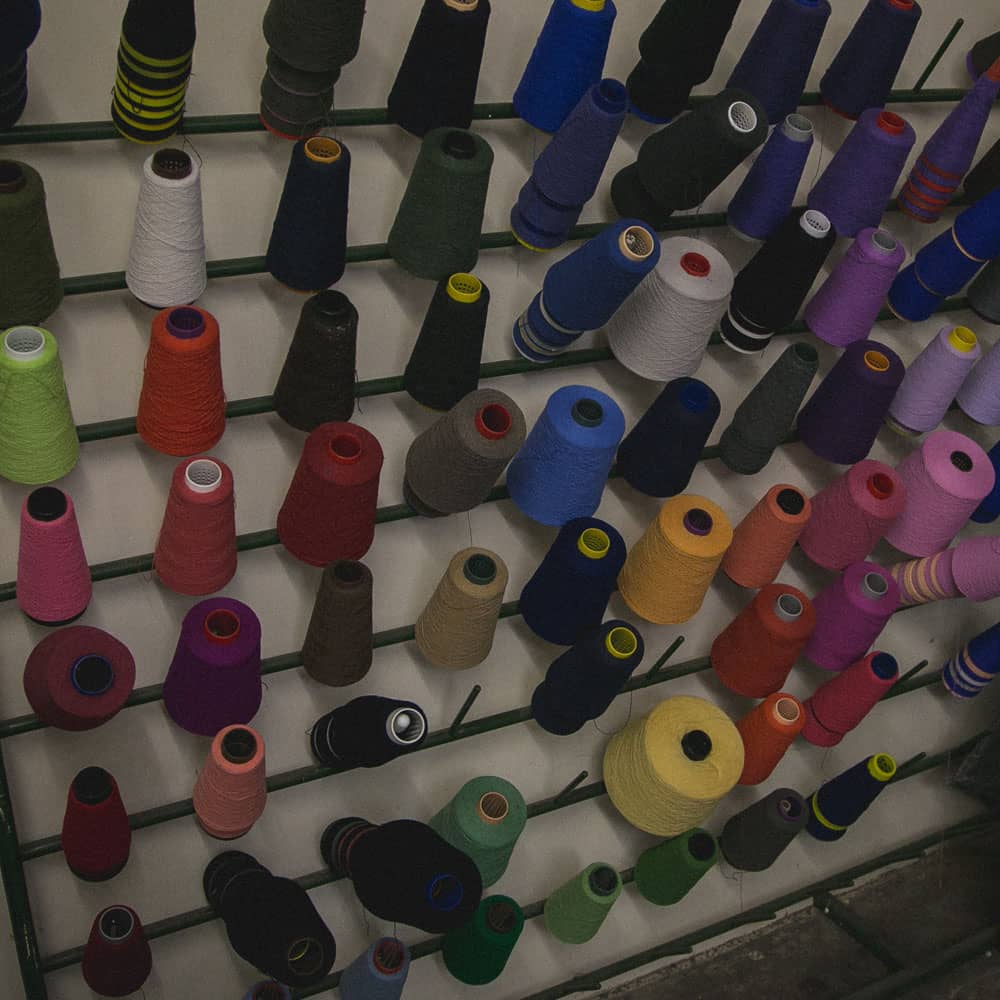
Why manufacture in the UK
‘Made in Britain’ is becoming more and more important to consumers. There are now many new trade shows in London, such as Meet the Manufacturer and Make it British that really support British Industry in a variety of practices. Consumers are beginning to pay more attention to where goods are made and the experiential value. There is now a rise in customer interest in product provenance in the UK, which can be a defining dimension of premium brand identity, such as authenticity of origin, quality of production, values and practices. This is a very important selling point for my brand as my consumer is looking for a product that provides them with lasting value, and the experience of owning and wearing a higher quality item; an investment piece that will become a key staple for their wardrobe.
Differences between the UK and abroad
Manufacturing in the UK is very different to manufacturing abroad, and there is a deep rich textile heritage within the UK. Unfortunately, due to brands moving production to China during 1980s for competitive pricing, the UK textile industry has massively reduced. I feel that it is incredibly important to preserve our textile heritage, but due to this reduction of factories we are missing a new generation of linkers and knitters. If we don’t continue to manufacture in Britain, we will lose these skills completely.
People believe that UK manufacturing costs are not as competitive to China and Italy. Now, for knitwear this isn’t as true as it was in the past; wages have increased in Europe and China, working environments are improving therefore overheads are on the rise, and the current currency exchange of the dollar is seeing a general move of apparel production back to Europe. Italy and the UK have a beautiful style of finishing garments, but both are very different to one another. For example, the soft hand-feel of Scottish cashmere is created due to the softness of the local water in the Borders. It’s these small technical details give the product its renowned characteristics.
Benefits of manufacturing in the UK
The benefits of manufacturing within the UK include communication – there is no language barrier or time delay. If there is an issue I can jump into the car, drive to the factory, and help deal with any problems in person. I am also very flexible with lead times; I don’t have to arrange long shipment deliveries to the stockist, as the knitwear can be delivered in a day. The negatives could include the reduced numbers of factories available in the knitwear industry or the price of manufacturing, but I do believe I save money on custom fees and duties that would have been spent on importing.
Another positive to manufacturing in the UK are order minimums. For knitwear the averages in China is 1000 pieces per style minimum, whereas in the UK it can be from 50-200 pieces. This is an incredible plus when you are a new business and do not have the orders to match such high minimums.
Working with manufacturers
It took me a while to meet the right manufacturers in the UK who were open to working with a new label, and willing to take a chance on developing and working with new and innovative yarns. Each supplier is incredibly skilled in their field and my suppliers do not overlap each other, so I can constantly work with them on new ideas to develop a refined, contemporary collection. Most of my suppliers I found through word-of-mouth as it can be hard to find knitwear factories through search engines. I feel very honoured to work with such highly-skilled manufacturers.
The one thing I wish I was more aware of at the beginning was the relaxed attitude some factories have about delivering on time, especially if you are a startup brand. I think many designers at the beginning of their career or label have come across a situation where your delivery is four weeks late and your photoshoot is in two days, or experienced the knock-on effect of delivering late to your stockist, which is never a great start to your working relationship during your first season.
Though you cant plan these things, its good to give yourself realistic buffers in case of any issues or delays. Also remember that word of mouth is very powerful – ask for references from others in your industry if you’re looking to source.
Top tips
My top tips for manufacturing within the UK are:
1. Keep internal buffers for any delays.
2. Make sure you communicate your deadlines fully.
3. Make sure you’re maintaining a good margin.
4. Learn from the people you work with – there are so many highly skilled people who love to show how the process is done.
5. Meet the manufacturer face to face. This is key to get a manufacturer’s confidence in your brand – it shows that you are passionate and care about the people you work with.
Recent Posts
GS Collections
GS Sock Subscription
Subscribe and each month you'll receive a surprise pair of socks showcasing Genevieve's signature blend of premium yarns and contemporary patterns in seasonal, statement colours.

